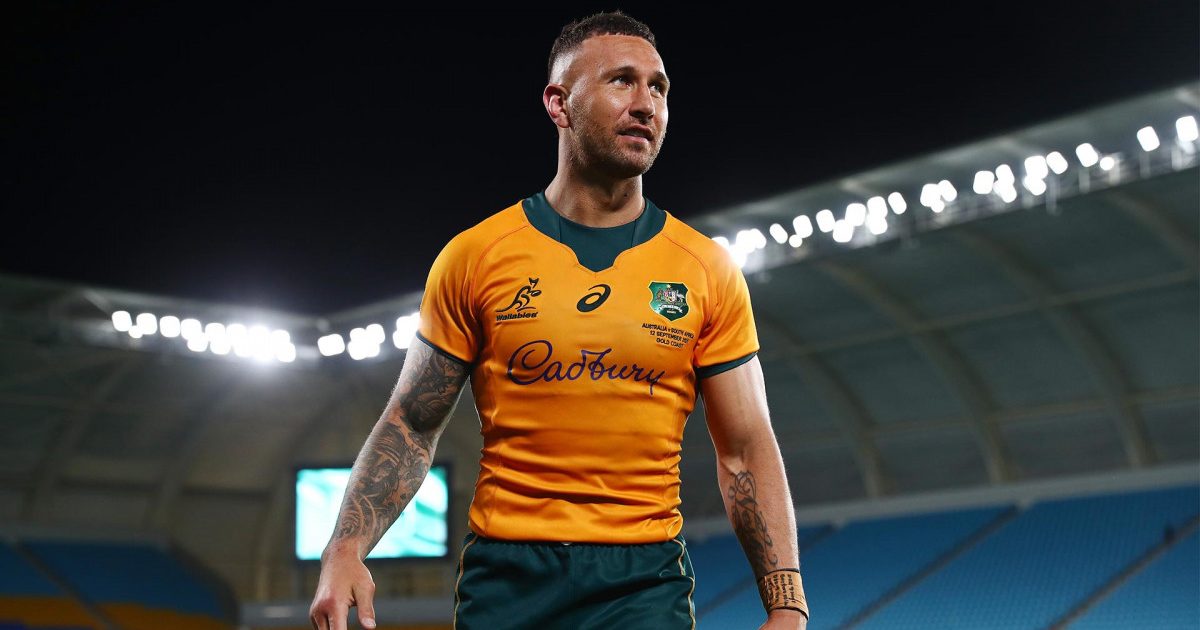Wallabies' World Cup chances hinge on imminent Giteau Law changes

How Rugby Australia tweaks the Giteau Law will shape the Wallabies’ path to the 2023 World Cup after a yo-yoing test season offered a peek over both sides of the fence.
Dave Rennie’s side finished a 14-test campaign with seven victories, with an impressive Rugby Championship the meat in a sandwich of Bledisloe Cup and Spring Tour pain.
Record losses to New Zealand and the first winless spring tour of Europe since 1976 don’t make for good reading.
But the fine print shows an unprecedented COVID-19 bubble existence and the fact only three players were present in the 15 that started in both the first and last test.
Hunter Paisami was one of those, but missed a large enough chunk in between for his replacement Samu Kerevi to earn a world player-of-the-year nomination.
The barnstorming inside centre was a shock recall to the test fold alongside fellow overseas-based talents Sean McMahon, Quade Cooper, Tolu Latu, Will Skelton, Rory Arnold and Kurtley Beale.
Cooper and Kerevi’s partnership in particular reaped rewards, back-to-back wins over South Africa the highlight as Australia shot from seventh to third in the world rankings.
They were gone as quickly as they arrived, though, a messy few days of club-versus-country conversations ending in the pair and McMahon remaining in Japan.
Their absences in the United Kingdom upset the squad balance and left Rennie scrambling, with an unlucky loss to Wales a frustrating finale that led to the Wallabies sliding back to No 5.
Of that overseas group, only Beale and Cooper are able to play again under current eligibility rules, the 60-test or seven-year service cap colloquially known as the Giteau Law was relaxed due to COVID-19 and now set for review ahead of next year’s home series against England.
Their time in Wallaby gold revealed both sides of the coin – and summed up the season in general – as Rugby Australia mull over how to permanently alter their selection policy and provide Rennie the structure needed to truly formulate his World Cup assault.
“It was a real rollercoaster; wasn’t brilliant against New Zealand, the next five, six matches were really positive and then the tour was far more difficult than I thought everyone thought,” two-time World Cup winner Phil Kerns told AAP.
Rugby Australia boss Andy Marinos has promised the sport’s chance to reset and prosper won’t be missed after the country all but landed the hosting rights for the 2027 World Cup. #RugbyWorldCup https://t.co/aFtBWY2Dh2
— RugbyPass (@RugbyPass) November 25, 2021
“They’ve got to get their act together, but I’d rather be losing now than in two years’ time (at France’s World Cup).
“And there’s no way that our team is anywhere near settled. We’ve seen that through selection, once settled, you’ll find some real improvement.”
Rugby Australia CEO Andy Marinos said the end-of-year review, to be held once Rennie returns from England where he’ll coach the Barbarians this weekend, would ideally help settle on a permanent selection structure that wouldn’t change in a World Cup year.
And he said a 2025 British & Irish Lions tour of Australia to follow the next World Cup would encourage players to remain or return to Super Rugby, rather than rely on an eligibility tweak to qualify.
“It’s attracted quite a lot of attention … we’d like to get as much consistency as we can,” he said of the Giteau Law.
“We saw it this year when we started winning … players want to play where they’re going to get silverware, grow and develop.”









































































